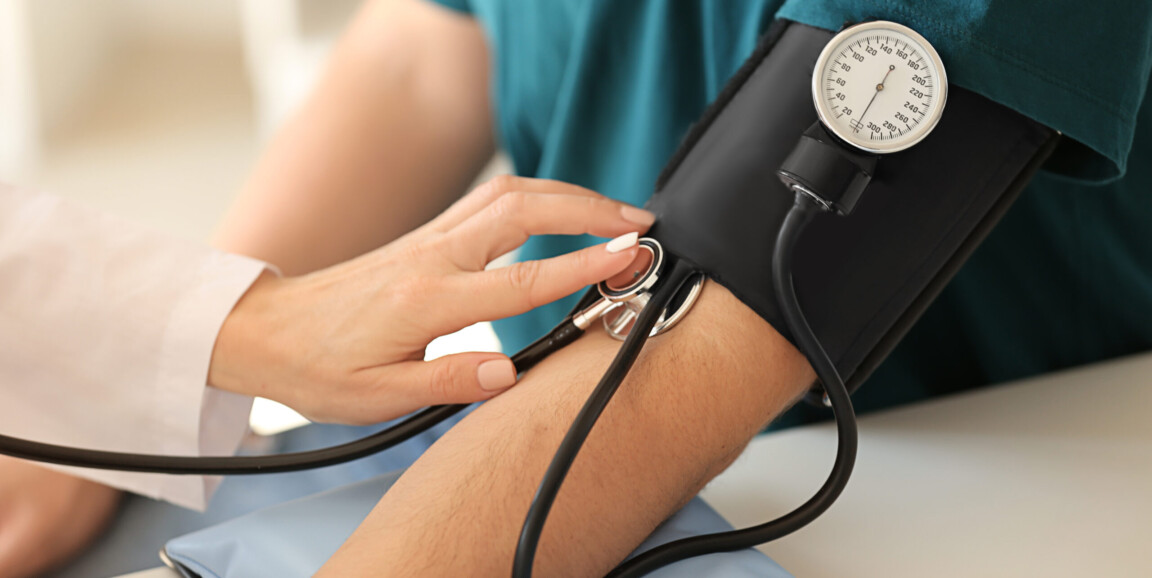 It's a wonder anyone takes their blood pressure medications when you look at the required package inserts that list all of a medication's possible adverse effects: headache, diarrhea, hair loss, rash, itching, cough, weakness, dizziness and more -- the lists are long and intimidating.
It's a wonder anyone takes their blood pressure medications when you look at the required package inserts that list all of a medication's possible adverse effects: headache, diarrhea, hair loss, rash, itching, cough, weakness, dizziness and more -- the lists are long and intimidating.
Side effects are common with these medications, although they don't happen with everyone and are usually not severe. But even minor side effects can reduce a patient's motivation to take their medications consistently. The drugs are effective at preventing heart attacks and stroke, so it's important that patients take them as prescribed.
Let's find out more about Margaret's experience with side effects from her drugs (To refresh your memory, refer to the preceding post on common hypertension drugs):
Margaret's a 53-year-old with high blood pressure and was first treated with lisinopril seven years ago. This medication worked well at first, but caused an annoying dry cough. When her lisinopril was no longer adequate to control her blood pressure, her doctors started a second drug, amlodipine. She noticed occasional swelling in her feet and ankles, especially after prolonged standing at work. Both drugs reduced her interest in sex.
Some side effects occur with many medications for hypertension, while others are specific to different classes of high blood pressure drugs. Some of the most frequent side effects include:
- Dizziness after standing up and sexual dysfunction are common across all blood pressure medications because they interfere with the body's natural mechanisms to regulate blood flow.
- Diuretics, such as hydrochlorothiazide (HCTZ), can cause problems with excessive urination, although this problem often diminishes with long-term use.
- Angiotensin converting enzyme inhibitors or ACEIs, like lisinopril, frequently cause a bothersome dry cough. Sometimes this can be tolerated, other times it is so bad that the medication must be stopped.
- Angiotensin receptor blockers (ARBs), like losartan, generally have fewer side effects than other blood pressure medications, but don't have as strong a record of effectiveness. These drugs are often prescribed when their cousin drugs, ACEIs, cause side effects.
- Calcium channel blockers, like amlodipine, can cause swelling in the feet and ankles that's greatest at the end of the day and often worse for women.
- Beta blockers, like metoprolol, cause the heart to beat more slowly (which can be a good thing in heart disease) and can also worsen asthma symptoms and cause problems with depression.
These are the most common side effects, but all blood pressure medications have less common, but more serious side effects. Even common side effects can vary in severity. Many patients can tolerate mild side effects given the substantial benefits of preventing heart disease, stroke, heart failure and kidney disease. And there's evidence that lowering blood pressure works: A recent clinical trial, known as SPRINT, compared standard and more intensive approaches to treating high blood pressure and showed by lowering blood pressure an additional 16 mm Hg in the intensive group meant 27 percent fewer deaths.
If side effects do force doctors and patients to stop using a drug, it is crucial to start a replacement medication. Many lifestyle changes can also lower blood pressure. Changes in diet, weight, sleep, stress, and physical activity rarely cause side effects, help medications work more effectively, have other health benefits beyond high blood pressure, and invariably end up improving patients' sense of well-being.
The bottom line: See how you can modify your lifestyle, take your medications every single day, be alert for side effects, try to tolerate side effects if they are mild, and if they're not, work with your doctor to switch to a different medication.
This is the third piece in a five-part series, "Too High," created for those with high blood pressure and their family and friends. Future articles will discuss the power of lifestyle changes and appropriate blood pressure targets. Some data in this series come from QuintilesIMS. For additional information, please contact rstaff@stanford.edu.
Randall Stafford, MD, PhD, a professor of medicine and director of the Program on Prevention Outcomes and Practices, practices primary care internal medicine at Stanford. He is developing practical strategies to improve how physicians and consumers approach chronic disease treatment and prevention.
Previously: Too high: Older drugs work well for hypertension, new medications show little innovation and Too high: Despite drugs, blood pressure rates continue to soar in the United States
Image by Pixel-Shot




